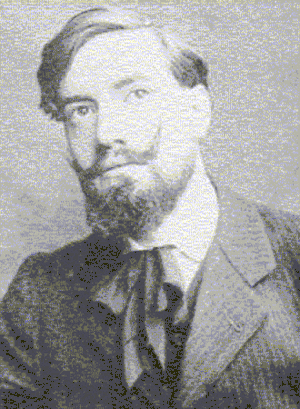Jaime Cortesão
Jaime Zuzarte Cortesão (29 April 1884 - 14 August 1960) was a Portuguese doctor, politician, historian and an author.
Jaime Cortesão | |
|---|---|
 | |
| Born | 29 April 1884 Ançã, Cantanhede |
| Died | 14 August 1960 (aged 76) LIsbon |
| Occupation | doctor, politician, historian, author |
| Nationality | Portuguese |
Biography
Cortesão was born in Ançã near Cantanhede. Later he studied at the University of Porto for his medical studies. In 1919, he was director of the National Library in Lisbon. In 1921, he wrote several articles in the review Atlantida[1] and the periodical Seara Nova. In 1919, he was officer of the Order of St. Jacob of the Sword. As he was a democrat and a republican, he was one of the first leaders of counter-rebellion in Porto in 1927 against the Fascist regime, Estado Novo, He was sent into exile into France and in 1940 into Brazil. Later, he returned to Portugal in 1957 where he died in 1960. A memorial to him is located in the Cemiterio de Prazeros in Lisbon.
He was posthumously awarded the Grand Officer of the Order of Freedom and the Grand Cross of the Order of Prince Henry the Navigator.
Works
Some of the works he did as a historian were related to Portuguese discoveries of the world and Colonial Brazil. He made folk songs and gave them out and showed himself the historical verses as the successor to the writer Almeida Garrett.
List of works
- Poetry:
- 1910: A Morte da águia
- 1923: Divina voluptuosidade
- 1940: Missa da meia-noite
- Dramas:
- 1916: O Infante de Sagres (Knight of Sagres)
- 1921: Adão e Eva (Adam and Eve)
- Non-fiction:
- 1941: O carácter lusitano do descobrimento do Brasil (The Lusitanian Character on the Discovery of Brazil)
- 1943: A carta de Pêro Vaz de Caminha (Map by Pero Vaz de Caminha)
- 1949: Eça de Queiroz e a questão social (Eça Queiroz and the Social Question)
- 1960/1962: Os descobrimentos portugueses (Portuguese Discoveries) - 2 volumes
References
- Silvana Fernandes Lopes (2012). "Atlantida" Magazine: elementary education in Portugal and Brazil in the early decades of the twentieth century". Rev. Lusófona de Educaçãol (20). Retrieved 3 July 2017.
External links
- Jaime Cortesão at the Portal of Former Illustrious Students at the University of Porto (in Portuguese)
- Jaime Cortesão at Infopedia (in Portuguese)
- Cátedra Jaime Cortesão - University of São Paulo (in Portuguese)